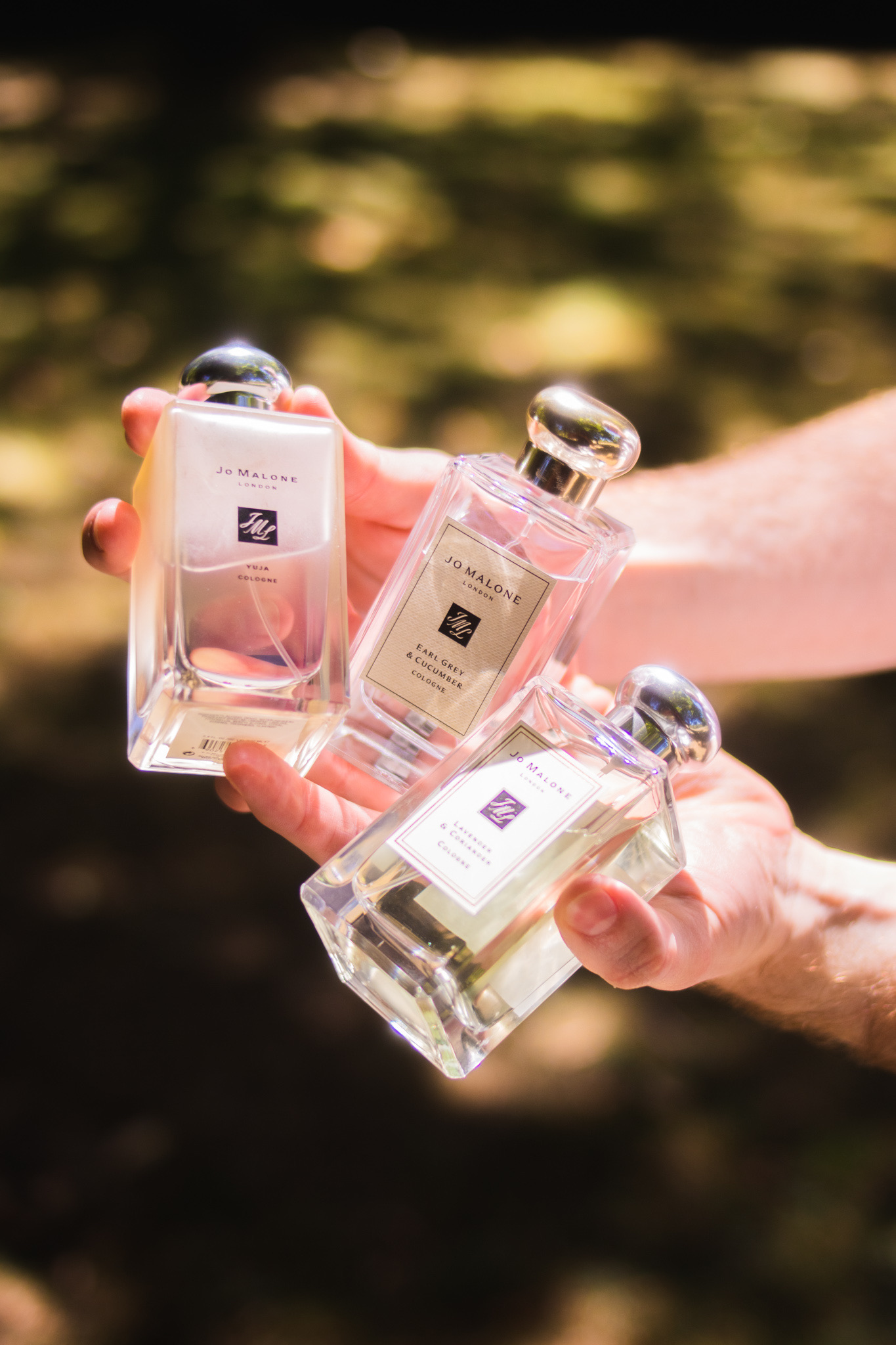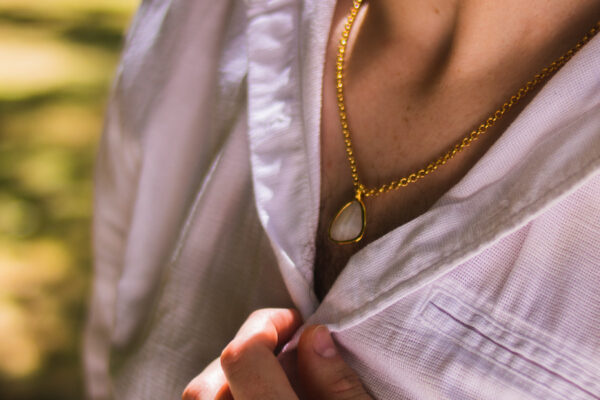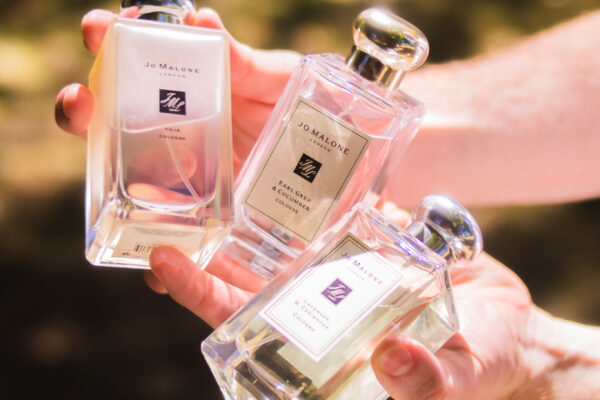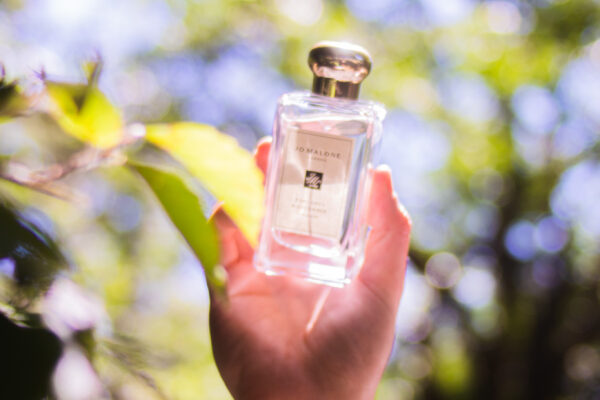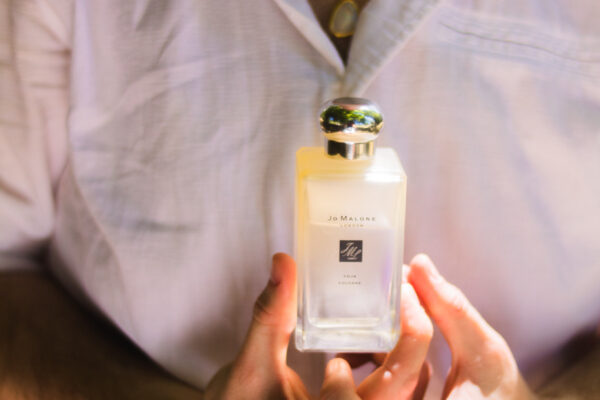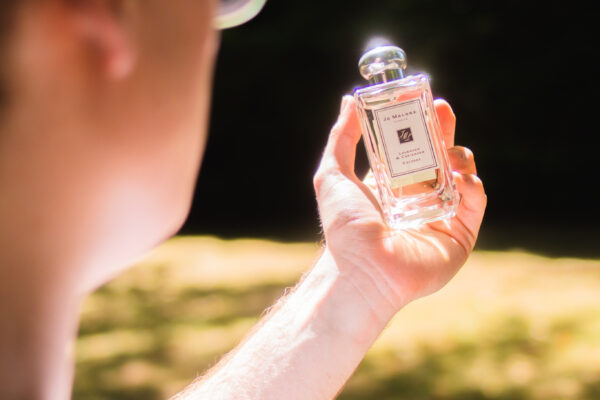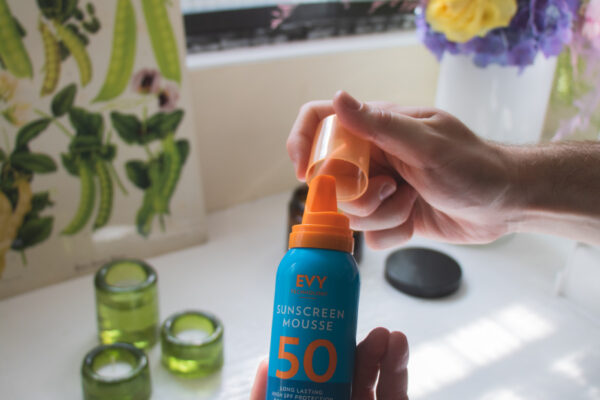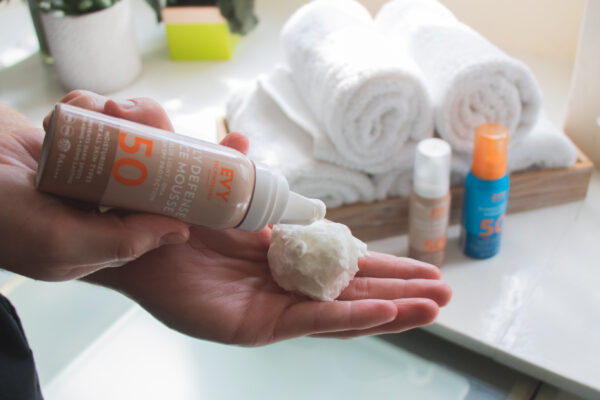Is Fragrance Bad?
Exposure to fragrance can cause a variety of reactions including contact dermatitis, urticaria (hives), photoallergy and skin discolouration – but why could your signature scent be causing so much skin damage?
So, What’s The Problem?
You could be prematurely ageing your skin just by spritzing on your favourite fragrance – even if you’re conscientious when it comes to your anti-ageing skincare regime. Sprayed directly onto skin, perfume is so aggressive that it undermines skin’s ability to protect itself against UV damage. That means that perfume-covered skin becomes more vulnerable to sun damage and ageing pigmentation.
It is also believed that about 1-3% of the European population has allergic contact dermatitis or allergic contact urticaria caused by fragrances.
In addition to skin contact, inhalation of fragrances can trigger or aggravate asthma and other respiratory problems. Fragrance ingredients can be detected by sensory cells in the eye and the upper and lower respiratory tract and cause an irritation response. People with asthma, allergies, sinus problems and rhinitis are more susceptible to irritants, and often at lower concentrations than those which cause problems in the general population.
Contact dermatitis
Allergic contact dermatitis is the most common allergic response to skin allergens and typical clinical symptoms include itching, redness (erythema), swelling (oedema) and at worst blistering. The reaction normally appears where the cosmetic product was applied, but strong reactions can also trigger reactions outside the application area. Remains of the cosmetic product can also be transferred from your fingers and cause contact dermatitis in unexpected areas such as the genitals.
Allergic contact dermatitis from fragrances often occurs on the hands, in the armpits and on the face. It may be the primary cause of hand eczema, or occur as a complication of irritative or atopic dermatitis. Reactions in the armpit are often caused by the use of deodorants. If the reaction is extreme, it can spread down the arms and to other areas of the body. Eczema of the face is often caused by perfumed skin care products and after-shave products, but wet-shaving has also been proven to give an increased risk of fragrance allergy.
Contact urticaria
Symptoms of contact urticaria include itching and localised areas of swelling and redness (wheal-and-flare) where the cosmetic product was applied but also generalised urticaria (swelling anywhere on the body) and anaphylaxis. The symptoms may appear just minutes after exposure to the allergen, and usually dissipate relatively quickly (within a few hours). Fragrances such as cinnamal, cinnamic acid and Myroxylon pereirae have been shown to cause non-immunological contact urticaria. Other substances that have been reported to provide the same type of response include menthol, vanillin and benzaldehyde.
Photoallergy and phototoxicity
Clinical symptoms of photoallergy are mainly eczema. The symptoms appear and disappear within 2-48 hours after application of the product. Sun-exposed areas are most commonly affected but symptoms can also spread to other areas.
Phototoxicity (non-allergic) reactions from fragrances can occur. This can cause symptoms such as redness of the skin followed by hyperpigmentation. Furanocoumarins are plant-derived fragrances that have been shown to cause such a reaction.
DermaGuru’s Favourites:
It’s no secret that I have favourites (it’s so hard not to, when you work with such beautiful products) but here are a few of my favourite brands to date. Classic, Timeless and Beautiful.
Jo Malone (featured above)
Is It All Bad?
So I’ve just told you that your favourite perfume is bad for your skin, and now you’re confused? I feel you.
Perfumes are not inherently harmful, but they can be, depending on the area you are applying it to. Should you stop wearing perfume? Absolutely not. They are crucial to personal grooming and add to your personality in all the best ways. This is why I will show you the right way to wear perfume, and the top mistakes people make that damage their skin.
How Can I Protect My Skin?
You should use your facial sunscreen all the way down the neck and décolleté and it should be a broad-spectrum sun protection, as we need SPF to protect us against UVB (burning) and UVA (ageing).
Where Is It Safe To Spray Perfume?
My advice is to spray it on and around your clothes. Your wrists is another very popular area to put perfume and as this area does not receive a lot of sun exposure, it’s a safer place to spray it – but as mentioned previously can cause contact dermatitis, itching, swelling and anaphylaxis – making clothes the safest option for everyone.
I’ve Already Got Pigmentation, What Can I Do?
You can give your skin some vital ingredients that will really help it cope, even if it is already showing signs of ageing. Look for ingredients, such as Juvinity, which stimulate microcirculation and protect cells from oxidative damage. Or, anti-pigmentation ingredients, such as hexylresorcinol and liquorice extract, which will help reduce the appearance of existing pigmentation.
Can fragrances be avoided?
Unfortunately, it is difficult to avoid fragrances. The term “fragrance-free” is misleading because it only means that no substances are added to the product in order to provide a scent. Products labelled “perfume-free” may still contain fragrance substances added for other reasons (for example to mask a smell, added as a preservative). This means that allergic people must read the ingredient list to see if the product contains substances that they react to. In the case of substances that are added to scent a product, there are currently 26 fragrances that are classified and must be listed on an ingredient list. For the other fragrances it is enough to state “perfume” or “fragrance”.
Don’t Rub Perfume On The Skin
Perfume is meant to sit on your skin gently. Yet when most people apply perfume, they put it on their wrist and rub the wrists together. It is never a good idea to rub the fragrance on your skin or rub your skin together. It is damaging for your skin and also bruises the perfume.
You will probably wear perfume in the same spot every day. So, if you continue rubbing it in, you will end up damaging the skin. Besides, when perfume is rubbed or disturbed, you are forcing it to evaporate quickly. This will prevent the scent from formulating nicely.
Apply The Perfume On Pulse Points
Pulse points are great for application because they have a natural heat. They are much warmer than the other parts of your body. This allows for the scent to develop and spread nicely.
If you are planning to be out all day, try putting it on your calves and ankles. It lets the scent slowly rise throughout the day. You will have a very long-lasting effect that comes in slowly and stays for a long time.
Midriff and behind the knees are also great places when you are going out for a date, or spending a romantic night with your spouse.
The Alternative For Sensitive Skin – Hair
Some people have naturally reactive skin. Anything they put to the skin could irritate them, or cause a reaction. Don’t let this stop you from experimenting and feeling the best you can be.
Your underclothes are a great place – near the neck or elbows of your shirt. This will keep the perfume away from your skin. If you are worried that even this could irritate your skin, you can try out the ultimate alternative.
Before brushing your hair, spritz perfume on your hairbrush. Not only will you smell amazing all day long, but your hair will also not react adversely to perfume even if you have super allergic skin.
There are amazing fragrances that are made exclusively for hair. They also keep your hair fresh if you have not washed it in a couple of days.
Safe Application
There is no need to be paranoid about perfumes. Most of them are exclusively vetted, tested, and tried before they reach your hands. Simply being aware of best practices when it comes to perfume will be enough to protect you long-term and allow you to enjoy the best fragrance has to offer.
But as with everything, SPF is your best friend – even when it comes to perfumes.

